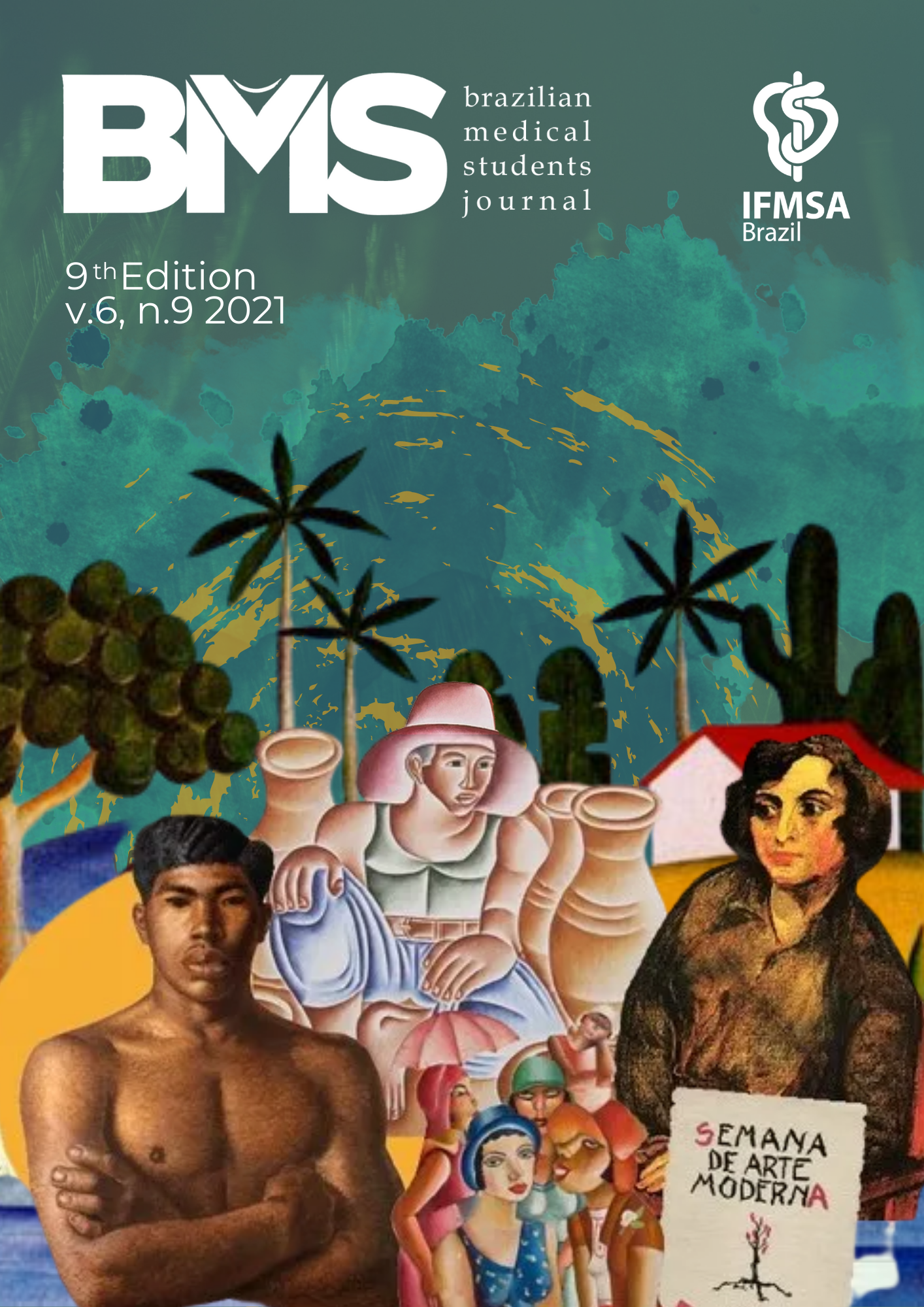Encephalitis secondary to SARS-CoV-2 infection
DOI:
https://doi.org/10.53843/bms.v6i9.260Keywords:
Covid-19, Complication; Neurological.Abstract
Introduction: All the methodological processes that involve the discussion about the neurological complications of Covid-19, and in particular encephalitis, indicate that although the clinical characteristics most observed in patients infected with SARS-CoV-2 are associated with the respiratory system, systemic and systemic changes can also occur in these patients. Methodology: This is an integrative literature review study carried out in the VHL, PMC and IPTODATE, which are online databases of the virtual health library. The following scientific descriptors were used to capture the sample: “Encephaliti”, “viral Encephalophaty” and Covid-19”. The study sample consisted of 54 articles, of which only 19 articles published between the dates of September 2020 and August 2021 comprised the study sample after applying the eligibility criteria. National and international articles available in full were included. Results: The results presented were of great significance regarding the learning of theoretical and practical concepts in the discipline about the occurrence of neurological impacts of Covid-19. Discussion: The study of the subject allowed to observe the neurological complications of covid infection 19, mainly regarding encephalitis and the mechanisms in which Sars-CoV-2 has to reach the central nervous system, its epidemiology, clinical manifestations and treatment. Conclusion: Therefore, it was shown how Sars-CoV-2 virus infection can result in encephalitis, in addition to presenting important data such as its main signs and symptoms, its prevalence and treatment. However, there is still little literature that addresses these repercussions of Covid-19, mainly related to encephalitis. Therefore, more in-depth approaches and research are needed in order to better understand the mechanisms related to the entry of the virus into the central nervous system and how it generates such complications.
Metrics
References
ELKIND, Mitchell SV et al. COVID-19: Neurologic complications and management of neurologic conditions. UpToDate, abr, 2021.
HAIDER, Asim et al. COVID-19 and the brain: acute encephalitis as a clinical manifestation. Cureus, v. 12, n. 10, 2020.
NASCIMENTO, Oswaldo JM. Complicações neurológicas associadas ao SARS-CoV-2 (COVID-19) no Brasil: organização do grupo NEUROCOVID-RIO e achados preliminares. Revista Brasileira de Neurologia, v. 56, n. 2, p. 5-9, 2020.
SIOW, Isabel et al. Encephalitis as Neurological Complication of COVID‐19: A Systematic Review and Meta Analysis of Incidence, Outcomes and Predictors. European journal of neurology, 2021.
SARMAST, Shah T. et al. A Case of Acute Encephalitis in COVID-19 Patient: A Rare Complication. Cureus, v. 13, n. 6, 2021.
ABILDÚA, MJ Abenza et al. Encefalopatías y encefalitis durante la infección aguda por SARS-CoV2. Registro de la Sociedad Española de Neurología SEN COVID-19. Neurología, v. 36, n. 2, p. 127-134, 2021.
VAZQUEZ-GUEVARA, Damaris et al. Catatonic syndrome as the presentation of encephalitis in association with COVID-19. BMJ Case Reports CP, v. 14, n. 6, p. e240550, 2021.
VITALAKUMAR, D. et al. Neurological Manifestations in COVID-19 Patients: A Meta-Analysis. ACS Chemical Neuroscience, 2021.
GÓMEZ, Herminia Lozano et al. Encefalitis como manifestación neurológica del COVID-19. Medicina Clinica, 2021.
HARA, Makoto et al. COVID-19 Post-Infectious Encephalitis Presenting With Delirium as an Initial Manifestation. Journal of Investigative Medicine High Impact Case Reports, v. 9, p. 23247096211029787, 2021.
Downloads
Published
How to Cite
Issue
Section
License
Copyright (c) 2022 Gabriela de Oliveira Brito, Ana Karoline Santos Losada, Débora Chaves Martins, Maria Izabel Silva Quintino Santos, Nathália Damas Campos, Marcelo José da Silva Magalhães

This work is licensed under a Creative Commons Attribution 4.0 International License.
User licenses define how readers and the general public can use the article without needing other permissions. The Creative Commons public licenses provide a standard set of terms and conditions that creators and other rights holders can use to share original works of authorship and other material subjects to copyright and certain other rights specified in the public license available at https:// creativecommons.org/licenses/by/4.0/deed.pt_BR. Using the 4.0 International Public License, Brazilian Medical Students (BMS) grants the public permission to use published material under specified terms and conditions agreed to by the journal. By exercising the licensed rights, authors accept and agree to abide by the terms and conditions of the Creative Commons Attribution 4.0 International Public License.






